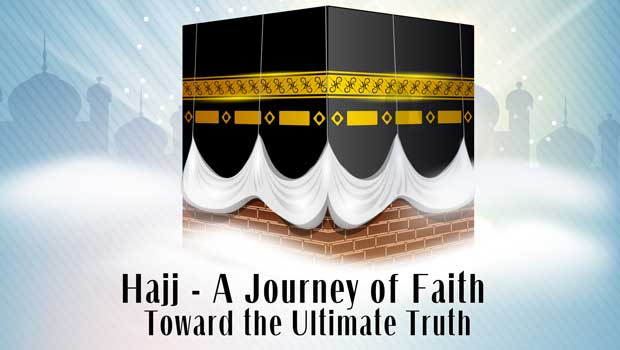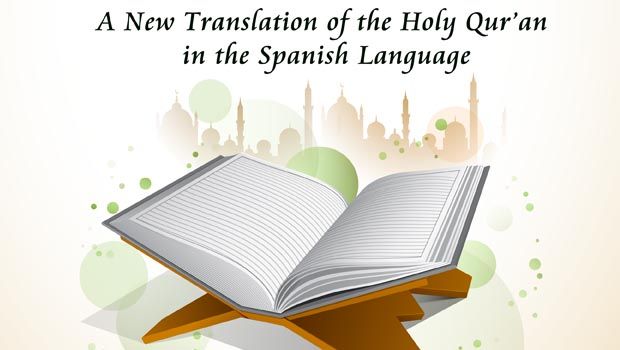Part one of this article covered five Names of Allah, and here are an additional six. To reiterate what I wrote in part one: the Names that I’ve chosen to focus on in this article are by no means any more powerful or valuable than the rest of His Names, but rather these are the Attributes of Allah that I have built a strong emotional connection to and that I, personally, have found to be a salve for my soul. “And to Allah belong the most beautiful Names, so invoke Him by them…” (Qur’an 7:180).
Al-Lateef / The Subtle
This Attribute is so unique because at first glance, it refers to one who is merciful and compassionate, but if we dig just a little further, Al-Lateef has this beautiful depth to it, where He is not just kind, but He is subtle in His kindness. He always provides us with what we truly need – even if we don’t know it ourselves in the moment. And although it is often difficult to recognize the wisdom behind His Will, if we are able to keep in mind that we have a Rabb who is Al-Lateef, it is a constant reminder for us to have hope in and trust Him.
There is no more powerful way to truly understand Al-Lateef than by looking into the life of Prophet Yusuf (a.s.) who has one of the most heart-wrenching stories. As a child, he was betrayed by his brothers and sold into slavery. He was thrown in prison for a crime that, he himself, was actually the victim of. He was forgotten by those who he helped save. And even after he finally gained some measure of authority, it took years for him to reunite with his family and he had to trick them into bringing them back into his life. And yet, after all the hardships he endured, he was forgiving and gentle, and as he reflected back on his entire life, Yusuf (a.s.) said, “…Indeed my Lord is Lateef (Subtly Kind) in what He wills…” (Quran 12:100). What more need we say?
Ash-Shakur / The Grateful
Allah doesn’t ask much of us. The One who created us, who we quite literally belong to, all He asks for is our obedience. And it’s not like there’s some kind of hidden agenda – obeying Him is for our own good; we are the ones who benefit from it. It doesn’t affect Allah whether we do what He commands. He is Allah, The Most High, and He is completely independent of any kind of need. And yet, He chose to reveal Himself as Ash-Shakur, as The Grateful?!
Similar to Al-Fattah, getting to know this Attribute of Allah should be such a humbling experience. Because the bare minimum that we need to do is be appreciative of the one who has blessed us beyond imagination. We ought to be the grateful ones. But Allah chooses to reveal Himself as The Grateful, as The Appreciative. And in what universe, do we, some of the most sinful of all creation, have the right to expect anything from Him, much less that He be grateful?
Ash-Shaheed / The Witness
Wallahi. Allah is my Witness. I swear to God.
These are all variations of the same concept that is illuminated in the verse “sufficient is Allah as a witness between me and you” (see Qur’an 17:96). Allah sees all, He hears all, and He knows all regardless of whether it is something that is clearly manifest to everyone or a secret that is hidden in the deepest recesses of our souls. And when we invoke Allah as Ash-Shaheed, we are making a very, very powerful statement. Who needs the validation of people when we can call upon Allah Himself as The Witness to what we claim? It is also risky though because if we take Allah as our witness and what we have said is incorrect — that’s terrifying.
One side point to note is that witnessing shares the same root with the Arabic word for martyrdom. In fact, someone who dies in the cause of Allah is called a shaheed. Because it is the martyrs, the shaheed, who are those who bore witness to the truth with their lives.
Al-Haqq / The Truth
Truth is a constant – it can never be hidden for long, it will always find its way to the surface, and it is very easily distinct from falsehood. And if this is what we say about truth, then Al-Haqq Himself, the one who has created and designed every facet of reality, can only be greater in every sense. He can never be hidden and certainly never behind falseness and deceit. Those who are sincere will distinguish Allah as easily as one can distinguish truth.
Truth also gives us purpose. If Allah is The Truth, then that means His promise is true. The Day of Judgement is true, His mercy is true, and most beautiful of all, Jannat ul-Firdaus, the reward of eternal contentment and bliss, that too is true. And once truth has become clear from falsehood, is it not our responsibility to adhere to it? Once we recognize Allah alone as The Truth, and we feel that mixture of fear and hope that comes with this realization, we are given the purpose of living our lives in obedience to Al-Haqq.
Ar-Ra’uf / The Kind
There is so much suffering in human lives, but we must remember that we have a Rabb who is kind. There is no better way to say it. And what makes Him as Ar-Ra’uf distinct from His other attributes of mercy and compassion is that ra’fah is a kindness that is apparent. There are sometimes in life where we go through something terrible and painful, and it takes us years down the line before we see.
His mercy and are able to realize how Allah protected us. Then there are other times when we are able to comprehend the kindness of His Will in the moment it happens. And this is an indication of Ar-Ra’uf, the one through whom compassion is outwardly manifest.
Like Al-Wahhab, invoking Allah by Ar-Ra’uf is such an emotional experience. In times where everything feels like it is going wrong, yes, we trust in the judgement of Allah, but trusting Him doesn’t mean that we don’t feel pain. And in those moments of pain, sometimes all we need is something small to happen, some tiny kindness, and it allows us to take that second to just breathe and ground ourselves and for that pain to begin to ease – that is the manifestation of the mercy of Ar-Ra’uf.
Ar-Rasheed / The Guide
The attribute of Ar-Rasheed has a special place in my heart because my dad’s name — Rashid — is based on the same root. I remember when I was young, I would listen to this one nasheed (religious, vocal music) that would list the 99 Names of Allah, and I would wait, not very patiently, to get to the end because that’s when Ar-Rasheed would come.
Ar-Rasheed is The Guide. He is the one who keeps us firm on His straight path. He is the one who makes clear what is right from what is wrong, whether it be in terms of halal and haram or what the right choices are even in the most minute of issues. And Ar-Rasheed has blessed me with parents who have been the manifestation of His guidance for me, and what more perfect way to symbolize that than by having one of them named Rashid.
The All-Beautiful Names of Allah, asmaa-ul-husna, they have been given to us as a mercy and as a way to get to know our Lord. So many Muslims feel a disconnect from Allah, feel an emptiness in their souls – and it’s no wonder that we struggle because too many of us aren’t taught any more than how to pray and read Qur’an. But we’re not taught anything about the one who we’re praying to and the one whose word we’re reciting. Dhikr means remembrance – but how can we remember a Rabb that we’ve never taken the time to get to know in the first place?
Allah has gifted us with 99 ways to get to know Him. And if we put in a little bit of effort to get closer to our Rabb, to just try to build that connection with Him, He has made us a powerful promise that can heal the aching loneliness that festers inside us all – “Remember Me; I will remember you…” (Qur’an 2:152).





